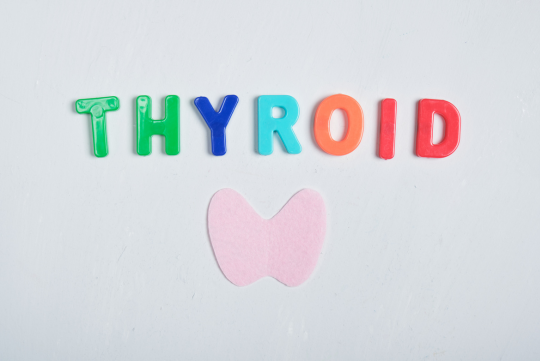Your Thyroid: The Chameleon of the Health World

I often call the thyroid the chameleon of the health world. Why’s this? Well, issues related to the thyroid often mimic or replicate a range of other symptoms, and as a result, such issues constantly get misdiagnosed as something like depression or fatigue.
The thyroid plays a pivotal role in regulating your body's metabolism. Heart rate, body temperature and even your mood. When it's out of balance, it can lead to a cascade of symptoms that often go unnoticed, misdiagnosed, or dismissed as normal.
One of the challenges in diagnosing thyroid issues is that conventional blood tests often rely on a narrow reference range. This range, while useful for identifying extreme cases, may not accurately reflect optimal thyroid function for individuals. Many people can experience symptoms even if their thyroid hormone levels fall within this "normal" range.
To determine thyroid issues, your TSH levels are tested, which are the messenger that tells your thyroid to start making its hormone. However, these tests can often be misleading. A "normal" TSH level doesn't always equate to optimal thyroid health. Many individuals experience symptoms of thyroid dysfunction even when their TSH levels fall within the "normal" range.
To understand your thyroid, it’s important to consider some of the other factors beyond TSH levels. Thyroid antibodies, for example, can provide valuable insights into autoimmune thyroid conditions like Hashimoto's disease and Graves' disease.
Unveiling some of those root causes
If you know me, you know I am passionate about finding the underlying, root causes of conditions. Often times, thyroid conditions can be rooted in lifestyle factors and underlying health conditions. Some of these factors include:
- Nutritional Deficiencies: Inadequate intake of essential nutrients like iodine, selenium, and vitamin D can impair thyroid function.
- Stress and Adrenal Fatigue: Chronic stress can disrupt the delicate balance of hormones, including thyroid hormones.
- Environmental Toxins: Exposure to heavy metals, pesticides, and other environmental pollutants can negatively impact thyroid health.
- Gut Health Issues: Poor gut health, such as leaky gut syndrome, can lead to inflammation and disrupt hormone production.
- Autoimmune Disorders: Conditions like Hashimoto's thyroiditis and Graves' disease can attack the thyroid gland.
A Holistic Approach to Thyroid Health
A functional medicine approach to thyroid health emphasizes a holistic approach that addresses the root causes of dysfunction. This may involve:
- Comprehensive Testing: In-depth laboratory testing to assess thyroid function, nutrient levels, gut health, and autoimmune markers.
- Nutritional Optimisation: Tailored dietary recommendations to support thyroid health, including ensuring adequate intake of essential nutrients.
- Lifestyle Modifications: Stress management techniques, regular exercise, and adequate sleep can significantly impact thyroid function.
- Targeted Supplements: Specific supplements may be recommended to address underlying deficiencies or imbalances.
- Addressing Underlying Conditions: Identifying and treating any underlying health conditions, such as autoimmune disorders or gut dysfunctions.
With a lot of factors that can impact thyroid health, it is tricky to fix with one product, but rather changing a number of factors. However, Vitamin D is essential for thyroid health and modulating inflammation. By improving Vitamin D levels and therefore inflammation, the thyroid is able to function more freely. Despite the reference range for Vitamin D in Australia sitting between 50-150nmol/L, most patients with thyroid issues (and people in general) feel much better with levels higher than 100nmol/L
So, recap. Having a dodgy thyroid is like driving a car with the handbrake on. The result? The rest of the car isn't able to work as it should. The same applies to the body. If the thyroid isn't right, then no matter what you do, the rest of the body isn't going to function as it should, meaning you'll constantly be feeling crappy.
Please update the “Product” setting with the product you want to display.






